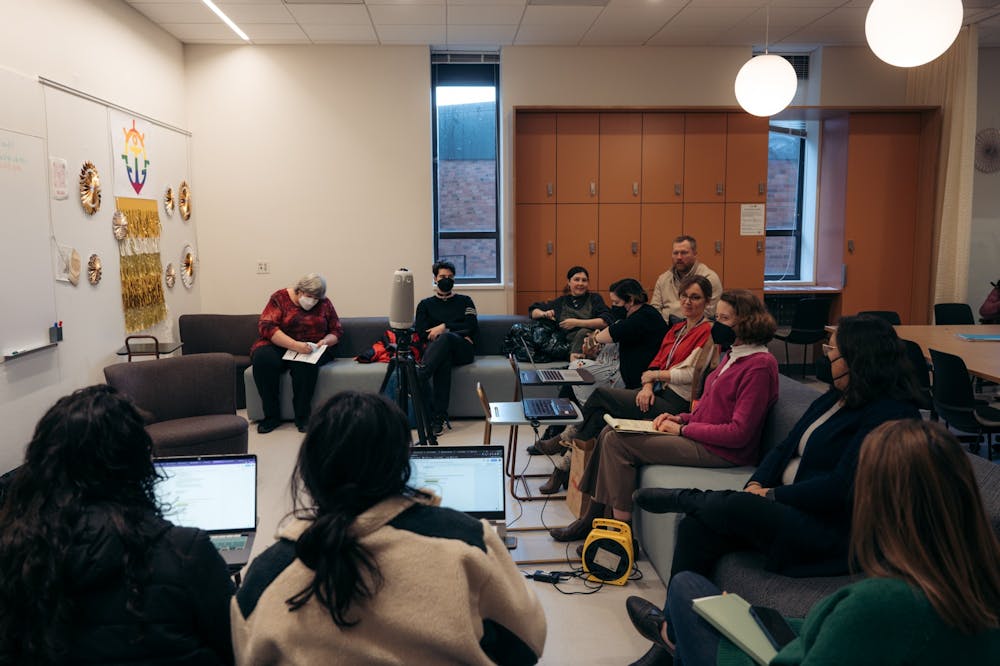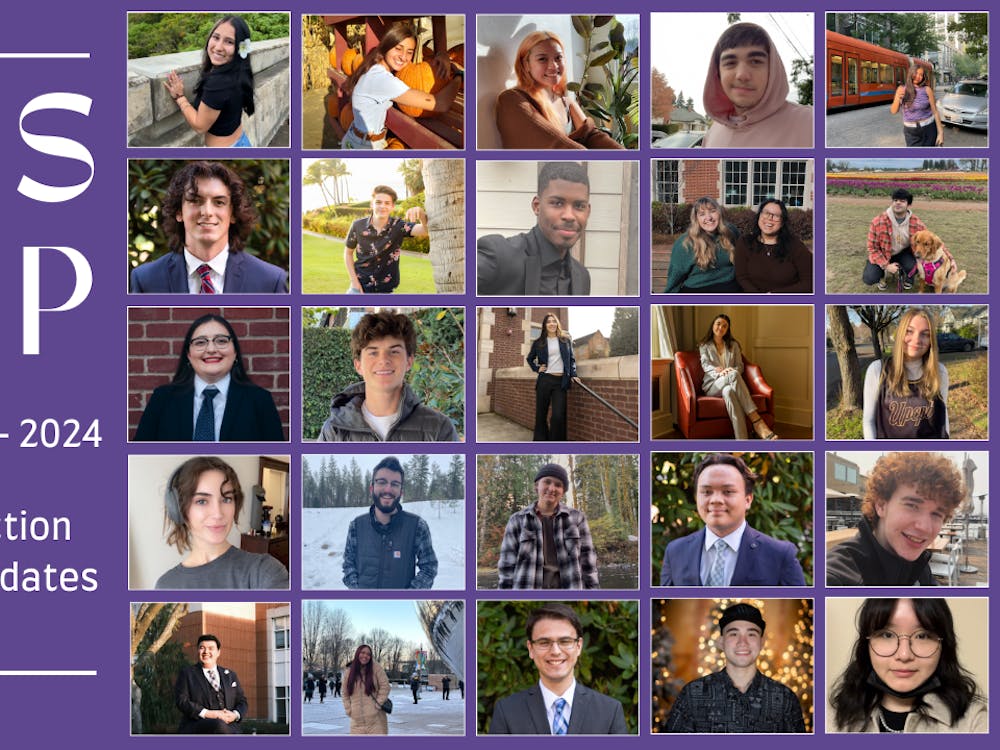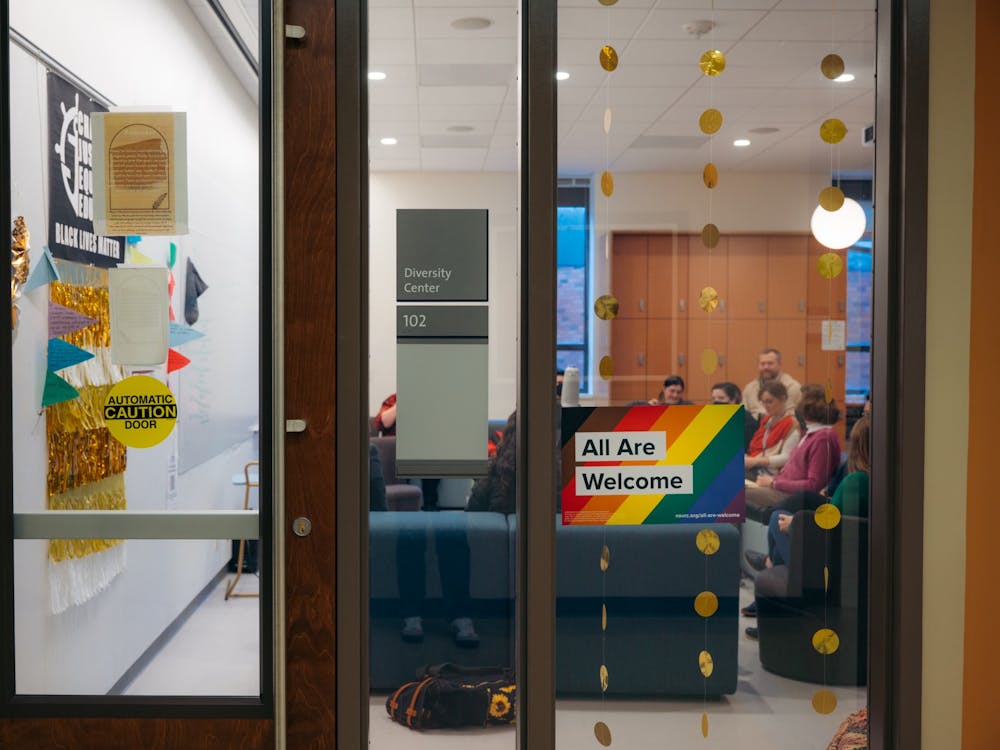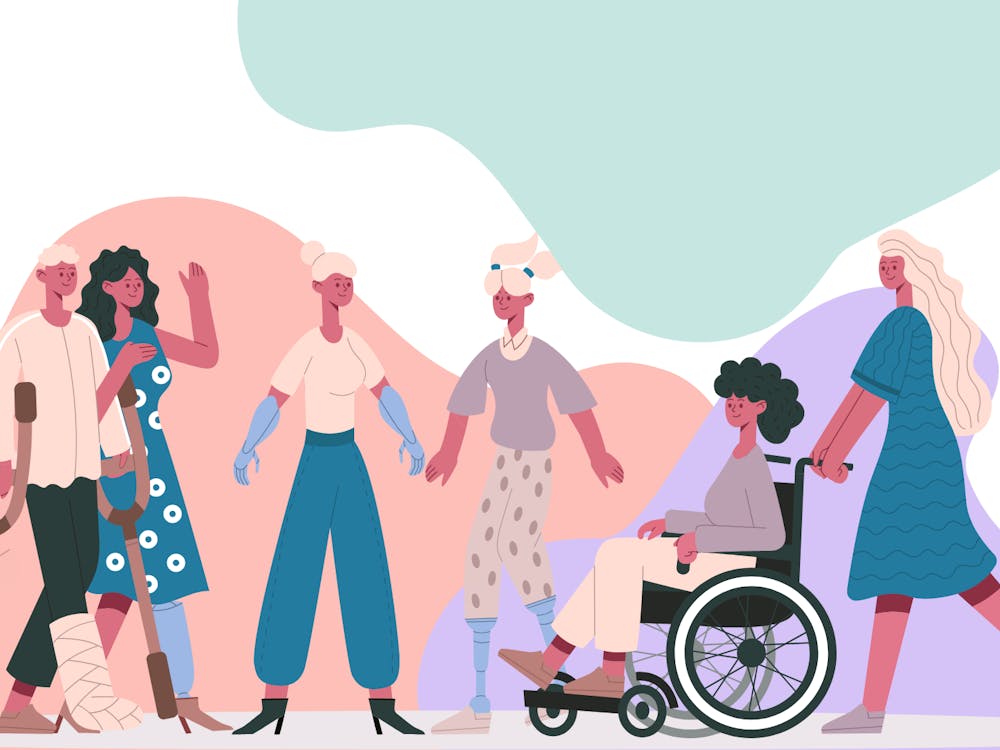For many people, the beginning of the COVID-19 pandemic is remembered as a time where everyday life was traded for a computer screen. Our definition of normal quickly changed as the pandemic developed, making us see the world in a completely different way than ever before.
While technology was able to bridge gaps for some people, new barriers arose for others.
Struggling with technology that is not adapted for all users, navigating the world through an online space or being unable to communicate effectively with masks were just some of the real-life challenges that emerged for people with disabilities.
During summer 2021, Sarah Nuxoll, an administrative assistant at the Clark Library, started the Disability Affinity Group, a group created to support people with disabilities and facilitate conversations about accessibility at UP.
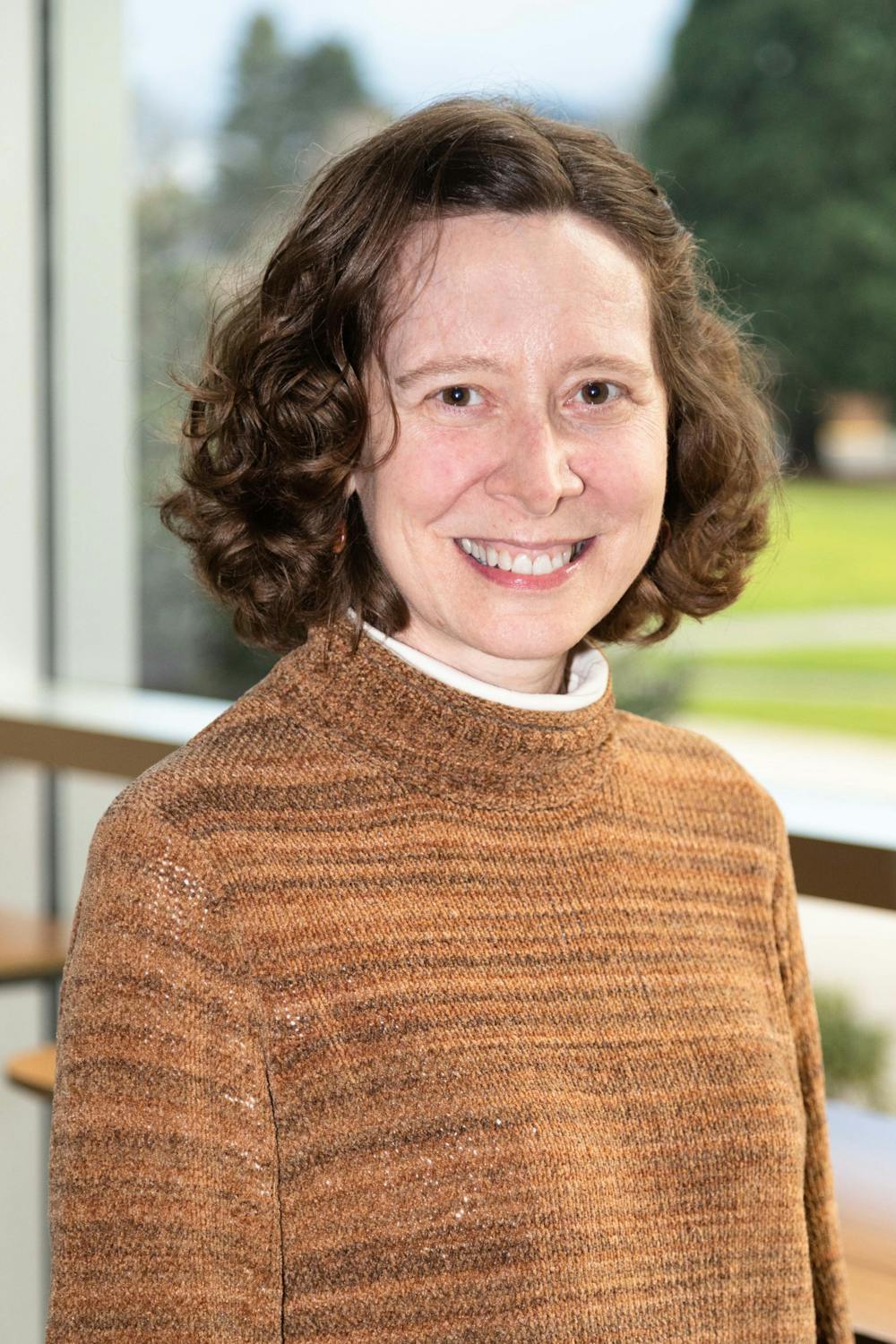
Meeting once a month, UP’s Disability Affinity Group is a growing community with goals and intentions set in place to foster an awareness shift around disability.
“I feel like more and more, disability is being recognized as a component of diversity and not just a separate thing,” Nuxoll said. “And there's something to celebrate about it, you can have pride about disability.”
For the affinity group, there is something missing at UP: an open dialogue on campus about educating, promoting and accepting disability.
“It's not always easy to make these changes,” Nuxoll said. “But I know that I personally feel better when we start to make these connections and generate momentum so things can be different.”
Starting their own website and leading a diversity dialogue are some of the ways their goals are shifting to meet this need in the greater UP community.
“Difference is Normal” — Disability Affinity Group website
One of the affinity group’s goals is to change the way disability is perceived. Their new website reflects this attitude.
“Difference is Normal,” asserts the homepage of the website. Imagined as a hub for the community, the Disability Affinity Group website includes a calendar of upcoming events and creates space for members and allies to share their stories through blog posts.
One post, by biology professor Jacquie Van Hoomissen, highlights the ways she’s learned to thrive with her disability. Focusing on uplifting the community, the website has a clear motive behind it.
“Well, difference is normal because a lot of people use the phrase neurodiverse — which is a word that came with a long history — but that phrase is wonderful to help us all see that all of our brains are very diverse in the way they function,” Van Hoomissen said.
“Here, we are reclaiming disability in a positive way, to build disability culture and disability pride,” the website says.
Ultimately, the website exists to build connections in the community and create networks of support.
“The folks who are involved are largely really passionate about trying to create something that will be a resource for students, faculty, staff — whoever is on campus — to kind of normalize disability and create community around it,” Nuxoll said.
Diversity Dialogue — Building Disability Inclusion & Community at UP
While employees and faculty comprise the majority of the affinity group, they ultimately want to expand their support to more members of the UP community — reaching a broader goal of inclusion and access to the community at large.
Their participation in the Diversity Dialogues was just one of many ways they are trying to expand that reach.
“There's so much diversity within disability,” Nuxoll said. “I can't possibly know someone's experience, but I can have compassion, I can have empathy, I can listen and I can invite them to share their experience.”
The conversation was centered on the personal experiences of folks with disabilities and their interaction with the UP community. Here, grievances as well as positive experiences were shared.
For many, this space was used as a way to find meaningful ways UP could be more inclusive to those with disabilities.
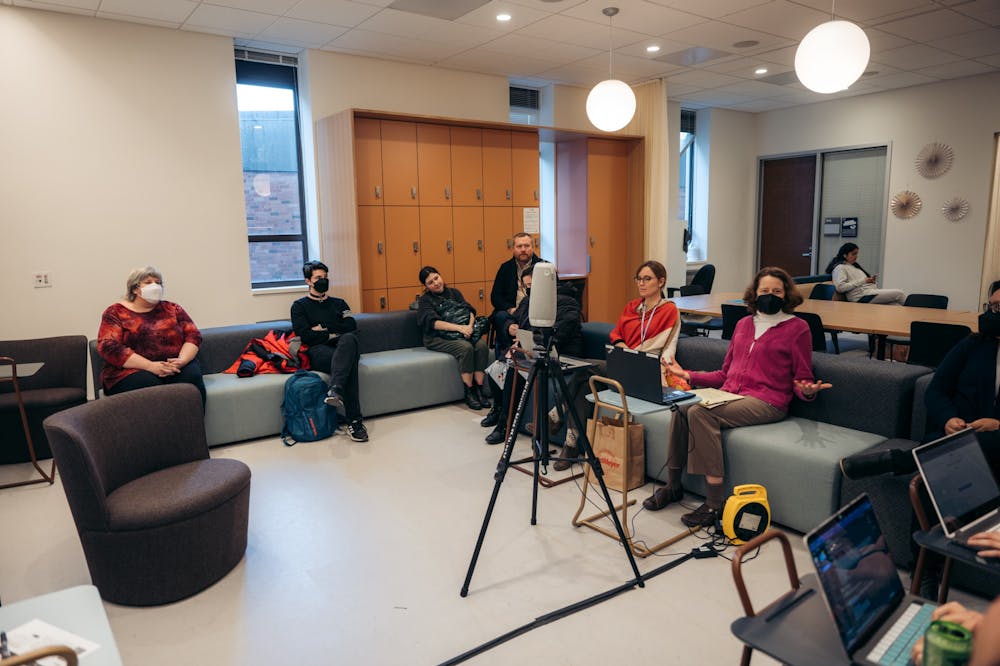
A Diversity Dialogue was hosted by the Disability Affinity Group on Jan. 30 to start a conversation about accessibility on campus.
“I'm always keeping my eye out for how we can make people comfortable on campus,” one participant said. “If there's obstacles in the way, I really appreciate having a group like this to be able to talk about these topics and how we can make it more people of all buildings.
The stories of how staff, students and faculty have, at one point, felt excluded from the University served as a powerful reminder of the group's importance of being a voice for those with disabilities. This sentiment was echoed as the conversation came to an end.
“I would love to see us continue to advocate for each other,” Nuxoll said. “It is a work in progress.”
Goals for the future
As access continues to develop in response to the needs of the UP community, the affinity group is leading the way for change and holding these important conversations.
Today, OWLs — instant closed captioning and flexible meetings that are open to virtual attendees — can create work and school environments that are more accessible. The affinity group is hoping to normalize these changes and hold UP to a standard of accessibility for everyone.
During classes and events, they’re hoping to make experiences more accessible by encouraging regular usage of visible captioning, microphones and better sound systems. Implementing universal design for learning training is an overarching goal that can make this a reality.
Another goal the affinity group is continuing to push for, is a more accessible built environment. This ranges from ensuring campus elevators and automatic doors work to more adjustable tables for people that use wheelchairs. Other ideas include adding an accessibility framework to event planning and space planning by adding proactive checks for accessibility issues.
As they continue to grow into the space they’ve forged for themselves in the community, the Disability Affinity Group hopes to become a safe space to learn and celebrate our differences, champion disability rights and make lasting change on campus.
Chiara Profenna is the DEI editor for The Beacon. She can be reached at profenna23@up.edu.
Kimberly Cortez is the Community Engagement Editor for The Beacon. They can be reached at cortez25@up.edu.



